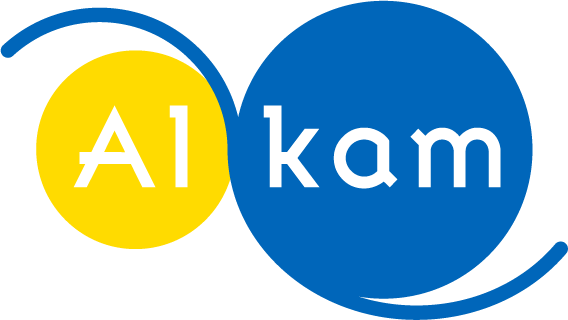What are the best materials for sustainable labels?
- Alkam

- Mar 13, 2025
- 4 min read

In an era where sustainability has become a global priority, packaging and labeling are no exception. More and more companies are looking for eco-friendly solutions to reduce their environmental impact, paying special attention to the labels applied to their products. Alkam, a leading company in the labeling industry, offers innovative solutions through the use of sustainable materials such as FSC®-certified, recycled, and recyclable labels. This makes Alkam one of the best choices for businesses seeking to combine quality with environmental responsibility. If you're unsure about the best materials for sustainable labels, this article is for you!
Index
Introduction to Sustainability in Labeling
Sustainable labeling not only meets the growing consumer demand for eco-friendly products but also represents an ethical commitment for companies looking to reduce their environmental impact. This approach goes beyond simply using recycled or recyclable materials—it embraces the entire product lifecycle, taking into account material sourcing, the production process, and the end-of-life disposal of the label itself.
Materials Used for Sustainable Labels
There are various materials that can be used for label printing, each offering different sustainability benefits. These materials can be classified into five main categories:
Materials from Renewable Sources
This category includes materials that do not originate from fossil fuels. Among these, we can certainly include paper, a renewable resource. Additionally, there is PE derived from sugarcane and PLA, a material obtained from the transformation of sugars found in corn, sugar beets, sugarcane, and other natural, renewable sources that are not petroleum-based.
There are also materials derived from fruit waste, olive residues, cotton, barley, and even marble.
Recycled and Certified Materials
Alkam has developed specific projects for large multinational companies, using recycled materials such as paper, PP, and PE.
All these materials are also subject to certifications and chain of custody standards, including FSC® and ISCC, ensuring their sustainability and responsible sourcing.
Biodegradable Materials
Biodegradable materials, such as paper and certain modified plastics, naturally decompose through the action of microorganisms like bacteria and fungi, without releasing toxins into the environment. These materials are particularly suitable for products that require rapid decomposition after use. However, the biodegradability of a material can vary significantly depending on environmental conditions such as humidity and temperature during disposal.
Packaging or products bearing the OK compost INDUSTRIAL label are certified biodegradable in an industrial composting facility. This certification applies to all components, including inks and additives, and follows the harmonized standard EN 13432:2000. Any product displaying the OK compost INDUSTRIAL logo complies with the EU Packaging Directive (94/62/EC).
Compostable Materials
Similar to biodegradable materials, compostable materials are designed to break down in industrial composting environments, which maintain optimal humidity and temperature conditions. At the end of the process, these materials decompose into compost, a nutrient-rich additive for the soil.
It is important to note that while all compostable materials are biodegradable, not all biodegradable materials are compostable.
As with biodegradable materials, packaging or products bearing the OK compost INDUSTRIAL label are certified compostable in an industrial composting facility. This certification applies to all components, including inks and additives, and follows the harmonized standard EN 13432:2000. Any product displaying the OK compost INDUSTRIAL logo complies with the EU Packaging Directive (94/62/EC).
Recyclable Materials
By pairing primary packaging with a suitable self-adhesive label, it is possible to achieve full recyclability of both materials. This can be done through HDPE shredding or by separating PET from the label using water immersion techniques.
From both an economic and environmental standpoint, giving materials a second life is always beneficial. This prevents waste from ending up in landfills or incinerators, as seen with materials like siliconized papers or transparent PET.
Sustainability Certifications for Labels
Certifications play a crucial role in validating companies’ sustainability efforts. Holding recognized certifications not only enhances brand credibility but also reassures consumers that the products they purchase comply with strict environmental standards. One of the most important certifications in the world of eco-friendly labels is FSC® (Forest Stewardship Council), which ensures that paper materials come from responsibly managed forests.
The FSC® label identifies products containing wood sourced from forests managed according to strict environmental, social, and economic standards. This includes virgin fiber paper and recycled paper. This certification not only confirms the sustainability of the materials used but also ensures that production practices meet rigorous ecological criteria, contributing to a reduction in environmental impact. For plastic materials, a recognized certification standard is ISCC, ensuring traceability and sustainability compliance in the supply chain.
Eco-Friendly Materials
The use of eco-friendly inks and adhesives is essential to minimizing the environmental footprint of labels. Low-impact inks and solvent-free adhesives are examples of how the labeling industry is evolving to reduce emissions of volatile organic compounds (VOCs)—chemicals that contribute to air pollution and may have harmful effects on health.
Alkam’s Sustainable Labels
Choosing Alkam’s labels means not only selecting a high-quality product but also actively contributing to environmental protection.
Why Choose Alkam’s Sustainable Labels?
Regulatory Compliance : Our labels meet the latest regulations (such as REACH and RoHS).
Versatility: Suitable for a wide range of applications.
Innovation: Continuous research into cutting-edge materials and technologies.
Discover our range of sustainable labels by clicking here!
Conclusion
Sustainable labels are not just an environmentally responsible choice, but also a strategic opportunity for companies looking to position themselves as leaders in sustainability. With Alkam, businesses gain a reliable partner that provides high-quality, eco-friendly packaging solutions, proving that excellence and environmental responsibility can go hand in hand.





Comments